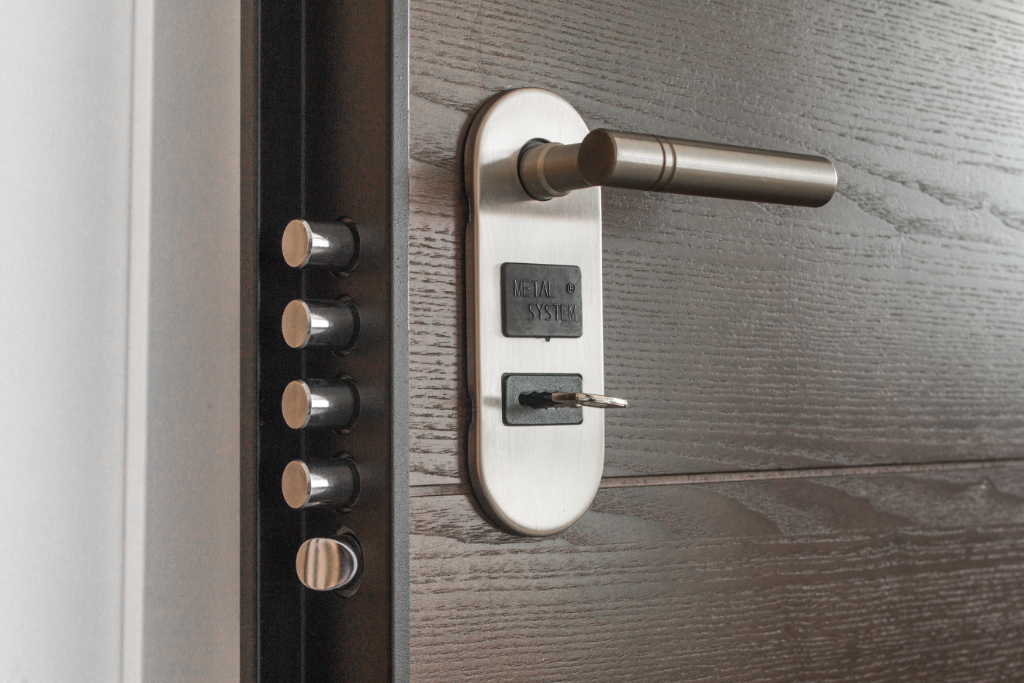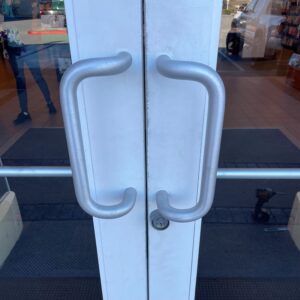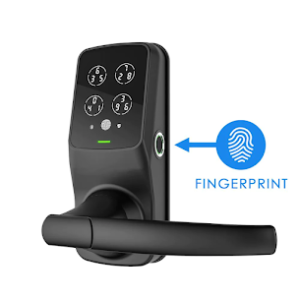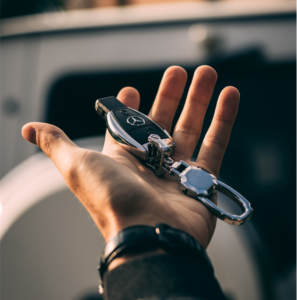When it comes to home security and high security, several solutions, from hidden cameras to wireless alarms, can keep your family and valuables safe. However, the simplest solution may be the most critical: your door locks. The proper high-security door locks guarantee that your property is freely accessible to its residents while remaining closed against undesirable intruders. Door locks include mechanisms for both doorknobs and deadbolts and features such as keyless access, Wi-Fi connection, and touchscreen control pads.
When picking a new high security door lock for your entrance, you will choose to think about the aesthetics, security, and convenience of the lock and your degree of comfort with the technology required to integrate a smart keyless lock into your home system. Each form offers distinct advantages and necessitates a diverse set of safeguards. You will need to examine your security requirements and lifestyle when determining which kind is appropriate for your house. Bar locksmith, which is a 24-hour locksmith, and is always available for you, will give suggestions on how to upgrade your home security by understanding the door locks.
What Are Various Types of Door Locks?
1. Knob Locks
Knob locks are the most popular form of door lock and the primary security technique for most doors. Instead of being placed on the door, the lock cylinder is situated in the knob. As a result, knob locks should not be used on exterior doors since they are readily broken with simple tools such as a hammer or wrench.
2. Cam Locks
Cam locks are made up of a fastener and a connected arm, or cam, which rotates to lock. They are cylindrical and feature a metal tube with a hole on one side that aids in positioning the bolt when it is inserted.
These door locks are often used to restrict unwanted entry in vending machines, filing cabinets, workstations, and display cases. They are mostly invisible in completely completed cabinets. Certain cam locks secure cabinet doors, making them ideal for securing sensitive items.
3. Deadbolt Locks
Deadbolts provide even more security against burglary or break-in. They feature lock bolts that move in response to turning a knob or key rather than a spring. Their unique locking mechanism is more resistant to physical attacks, pounding, and drilling, making them less vulnerable to knife or hand tool attacks.
Deadbolt locks are classified into three types: single, double, and vertical. Single-cylinder deadbolts are the most basic and can only be opened from one side with a key. Double-cylinder deadbolts may be opened by using a key from both sides. Vertical deadbolts function similarly to single and double deadbolts, except the lock moves vertically rather than horizontally. This position is more resistant to the forced entrance using an instrument like a crowbar.
4. Padlocks
Padlocks are self-contained. They are movable, as opposed to other locks, and are not permanently affixed to a door or container. They are available in a range of models divided into two categories: keyed and combination. There are many keyed padlocks, including keyed alike, keyed differently, and keyable.
Padlocks are easily identified by their movable nature and their looped-handle shackle design. To prevent bolt cutters from cutting through them, they may be built with elevated shoulders surrounding the shackle, sometimes known as guarded or veiled padlocks.
5. Mortise Locks
Mortise locks are strong locks that are used on outside doors. They are available in light-duty and heavy-duty varieties. They are more lockset than a lock since they have an internal system.
These locksets, which may hold knobs or levers, provide more security than cylindrical locks. They are threaded and use mortise components that are built into the door. The box lock is installed in a deep recess, or mortise, at the edge of the door and is fixed with a set screw and a cam, forming the locking mechanism. To accommodate various kinds of doors, the cylinder component is available at various heights and lengths.
6. Keypad Locks
Keypad door locks may be accessed without a key by utilizing an attached number keypad. They may be battery-powered or mechanical, and the locking mechanism often comprises deadbolt locks, knob locks, or mortise locks. These door locks provide more adaptability and allow entrance without a key, while many still have keyholes for different unlocking procedures. Some keypad locks include several personalized codes, allowing building managers to limit entry quickly.
7. Smart Locks
Smart locks are adaptable electronic door locks that provide extra options for locking and unlocking a door. While many smart locks have a keypad and a keyhole, the major advantage of a smart lock is to lock and open it using a phone or key fob. Many smart locks are Wi-Fi or Bluetooth-enabled and can communicate with home automation systems. These locks need electricity to operate and require battery changes regularly.
Traditional key locks are the most frequent; however, smart keyless locks are becoming more popular.
Most properties use key locks. Key locks come in diverse designs to match the look of the door and fit as deadbolts to handsets or locks. Many individuals appreciate the safe sense of having a lot of keys in their hand—they can feel the weight of their keys in their jacket pocket and know they remembered to get the ring off their desk when they left work, and they know all their keys are in one place. Traditional key locks provide tremendous security, numerous design options, and flexibility. Owners can leave a spare key with a trusted relative or friend, tuck a key into a responsible teen’s backpack, or lend one to a neighbor to let the nearest locksmith in, all while knowing that when the keys are returned, the home is secure. For these reasons, most houses rely on conventional key locks—plus, these locks need no wiring, Bluetooth, or internet connection, and they are difficult to hack without physically interfering with the lock. For these reasons, key locks create a feeling of solid security for individuals who are not comfortable enough with technology to commit their house to it. When someone is facing residential lockout Bar locksmith can provide 24-hour locksmith services.
Anyone who has ever seen a door swing shut and locks while the keys are inside realized the potential utility of a smart lock. A few rapid swipes on a phone or punches on a keypad may enable you back inside to turn off the pan of boiling water or go to your small children.
Keyless smart locks exist in various formats; some are just a keypad into which users punch a PIN, but most modern versions function through Bluetooth or Wi-Fi and open using an app, a linked key fob, or, in some cases, a fingerprint. The app or fob sends a message to the lockset on the door, which instantly unlocks it, sparing you the effort of fumbling with keys at the entrance and allowing you to enter hands-free.
Furthermore, many of these locks enable you to unlock the door from afar using an app; a parent may open a door while they are at work for a kid returning home from school or even a repair specialist who has arrived at the property. The convenience and simplicity of integration with other smart-home products have fueled the popularity of smart locks in recent years, which has expanded as more types and smaller devices have been available.
One disadvantage is that keyless locksets are power and Wi-Fi-dependent: although most come with a battery backup in a power loss, they may not operate correctly if the router has also lost power. Bar locksmith is a 24-hour locksmith and can help provide you with high-security locks.
Advantages of smart locks
Suppose you already have a digital home assistant, an app to manage your thermostat, lighting, and entertainment equipment, or a Wi-Fi-based security system installed in your house. In that case, a smart keyless lock is a natural next step. Many home security systems have smart locks as part of the package, but you can also connect them to other smart devices in your house individually. Combining all your smart devices in one app makes it easier to handle the many choices, and it also increases the likelihood that you will take care to safeguard your Wi-Fi connection. When a smart lock is integrated into an existing system, it becomes part of the routine to verify that the doors are secured and that all the battery backups are in place.
Smart keyless locks also save time: time not spent looking for house keys or driving back home to check if the door is locked; time not spent running home because your child forgot his key or your dog walker misplaced it—and then the time you would spend rekeying the physical lock and replacing all your keys. A keyless lock provides convenience and simplicity.
In both the home and the office, door locks are essential for security. As a result, it is critical to do a thorough study before purchasing a door lock for your establishment. It ensures that you choose the one that best meets your demands regarding safety, security, and privacy. Bar locksmith will always reach you to install or change your door locks to provide you with high-security locks and keep your valuables safe. It is the best locksmith near you and will rescue you from lock-out situations from home and car. Our access control systems will also keep you safe. Call us if you are in San Diego, California, to get high-security door locks.




